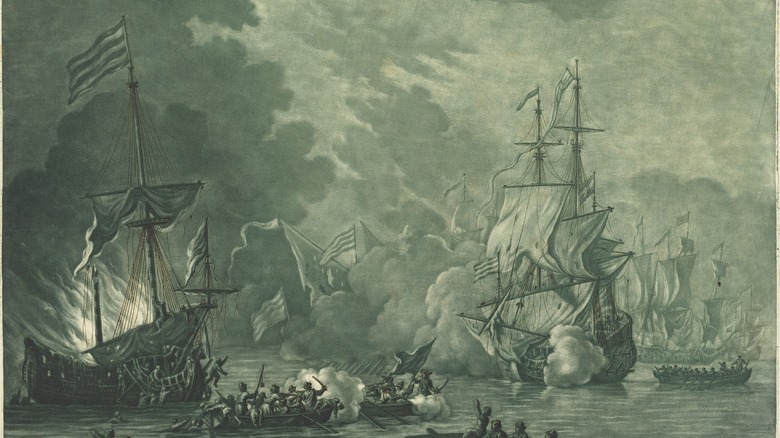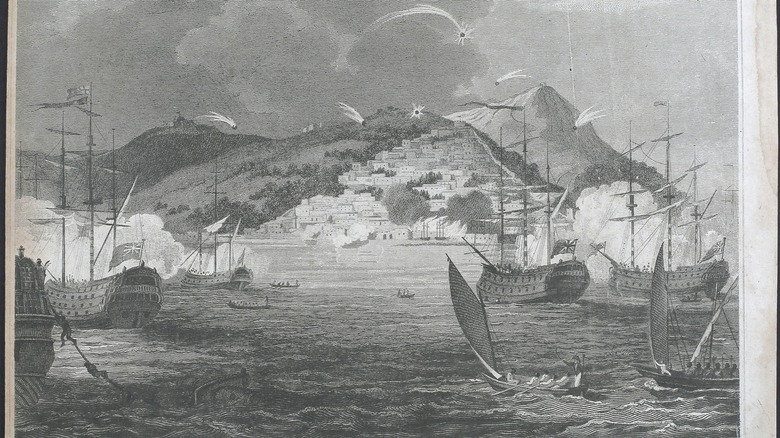The Truth About The Time Thomas Jefferson Fought Pirates
Thomas Jefferson is known for his role in writing the Declaration of Independence, his tenure as the third President of the United States, and his often controversial slave ownership. But he is perhaps less known for his role in the Barbary Wars, which pitted the United States against raiding, religious North African pirates (via Biography). The pirates came from the Barbary States, a collection of city-states like Tripoli along the northern coast of Africa. The pirates had affected shipping along the Mediterranean for centuries and were stopped at Jefferson's persistence.
The war was out of character for the Founding Fathers, as it bolstered a huge increase in the government's power. The Barbary War, which was undeclared, stretched the rules sanctioned by the Constitution to achieve Jefferson's goals. Mainly to send new and improved warships to the Mediterranean to flush out the pirates once and for all — although a Second Barbary War was needed.
The US Navy was founded
The Barbary States of Algiers, Tripoli, and Tunis reported to the Ottoman Empire, while Morocco was independent (via Monticello). The pirates were actually corsairs — state-sponsored sailors who were free to attack and raid non-believers. Several European states paid tribute to the Barbary States in exchange for safe passage through the Mediterranean and around the coast of Africa, but Jefferson wasn't interested in paying tribute. Indeed, he would rather form his country's first organized navy and attack them head-on, which is what happened.
Though Morocco accepted a peace treaty with a sizable sum, the Barbary States were not as inclined. Jefferson, who had dealt with corsairs during his time as secretary of state, declared in one of his first addresses to Congress as president that they were at war with the pirates. He had not consulted any congressmen on the matter but asked for expanded power to deal with the corsairs. The first few years were pretty disastrous, and Jefferson considered giving into tribute, but he gambled and instead greatly expanded the navy. They were able to blockade Tripoli, and soon, the Barbary pirates were defeated. Ultimately, Jefferson had solved a centuries-old maritime headache while simultaneously founding the U.S. Navy.

